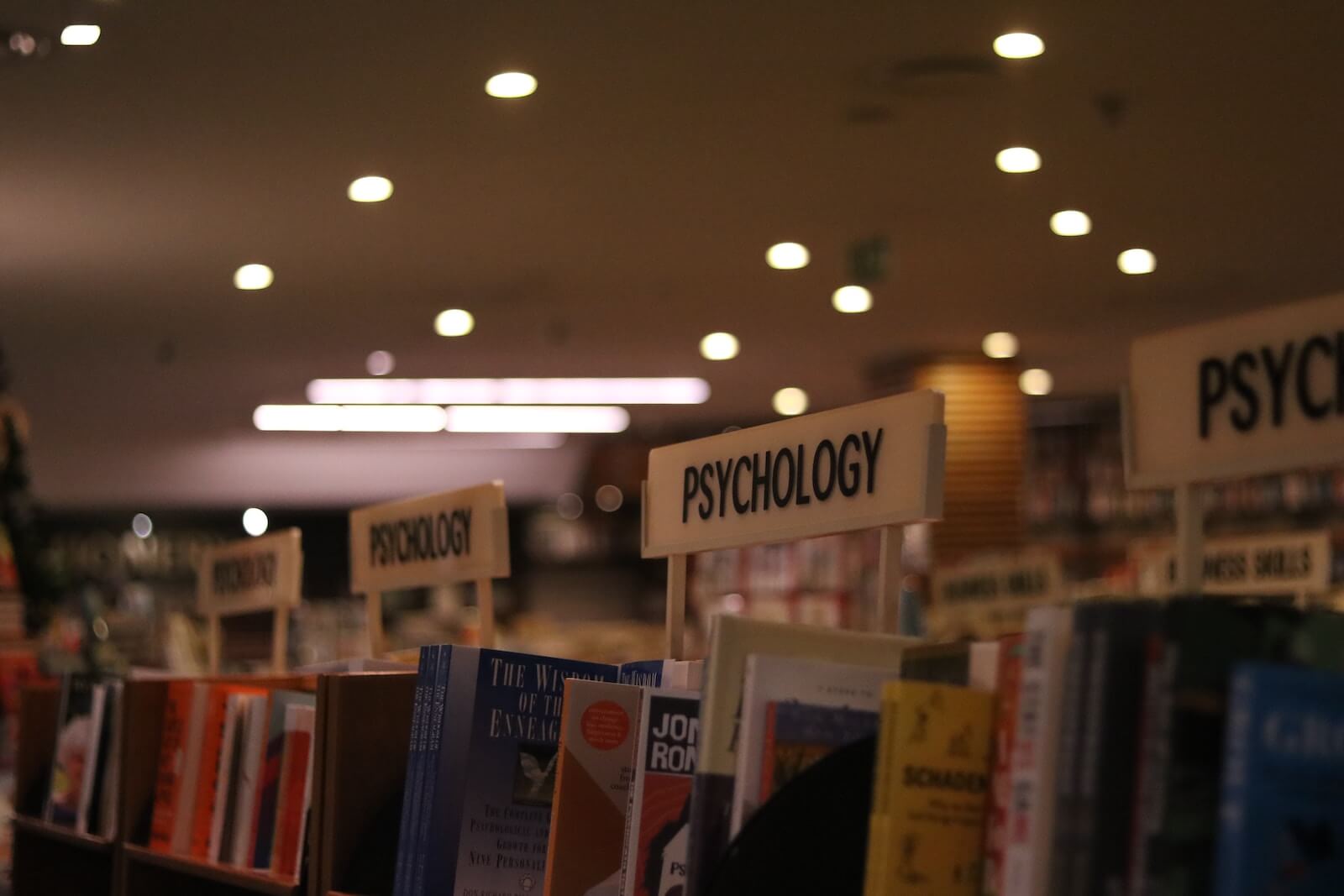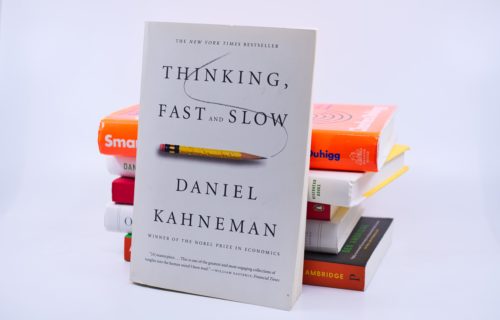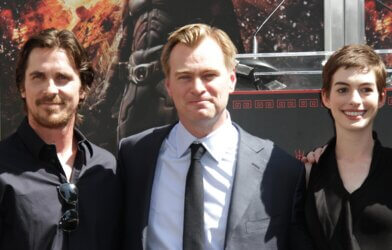Psychology books captivate readers with their exploration of the human mind’s hidden depths. They offer a glimpse into our own motivations, anxieties, and desires, making us feel a sense of connection and understanding. Whether learning about fascinating case studies or delving into the science of happiness, these titles on our list of the top seven best psychology books mirror ourselves and the complexities of the human experience.
Psychology books help many readers contextualize their own thoughts. For some, they can be insightful texts that provide guidance for better practices regarding critical self-analysis and actionable thought processes. Here are a few of the most frequently cited reasons that the psychology genre dominates bestseller lists:
- Self-Discovery: Psychology books offer a thrilling journey of self-exploration. Dive into the depths of your own thoughts, emotions, and behaviors, unlocking new insights and empowering you to become your best self.
- Understanding Others: From relationships to workplace dynamics, these books bridge the gap between minds. Discover the hidden motivations and emotional triggers that drive others’ actions, fostering deeper connections and navigating social complexities.
- Fascinating Case Studies: Delve into real-life stories of extraordinary individuals and everyday struggles. Learn from the triumphs and mistakes of others, finding solace in shared experiences and expanding your understanding of the human condition.
- Science of Happiness: Uncover the secrets to a fulfilling life. These books explore the science of emotions, habits, and resilience, equipping you with practical tools to boost your well-being and unlock lasting happiness.
- Engaging Narratives: Written by experts and captivating storytellers, psychology books aren’t just informative, they’re captivating. Get lost in accessible language, relatable anecdotes, and suspenseful narratives that will keep you turning the pages.
From anxiety to love, a vast range of subtopics ensures the best psychology books have broad appeal. So, dive in, explore the mind, and discover the next bestseller on your bookshelf with a little help from our trusted sources. Let us know your favorites in the comments below!

The List: Best Psychology Books, According to Experts
1. “The Man Who Mistook His Wife for a Hat and Other Clinical Tales” by Oliver Sacks (1998)
In Oliver Sacks’ spellbinding “The Man Who Mistook His Wife for a Hat,” neurology meets humanity. Readers will encounter individuals suffering from bizarre and fascinating neurological disorders. Oxford Scholastica Academy raves, “The book is named after one of these cases: the man who mistook his wife for a hat had visual agnosia. This is a condition where people are unable to interpret visual information so cannot recognize objects or faces. From this to a case about a patient who couldn’t recognize his own leg, Sacks deals with the most extraordinary conditions.”

About Great Books praises, “This book, about neurological disorders, tells the stories of individuals living with bizarre perceptual and intellectual abnormalities including such troubles as: patients who have lost their memories and with them the greater part of their pasts; people who can no longer recognize people and common objects; and those who are stricken with violent tics and grimaces.”
Broke By Books exclaims, “If you’re not already familiar with him, Oliver Sacks was a famous neurologist who helped make his field more accessible by publishing popular books about the mysteries and complications of what can happen to our minds and brains. Start with ‘The Man Who Mistook His Wife for a Hat and Other Clinical Tales,’ which details case studies from people Sacks encountered and treated.”
2. “The Happiness Hypothesis: Finding Modern Truth in Ancient Wisdom” by Jonathan Haidt (2006)
Ever wonder why ancient wisdom still resonates in our modern lives? Jonathan Haidt’s “The Happiness Hypothesis” bridges the gap, revealing how timeless teachings from philosophers and cultures around the world can unlock the secrets to lasting joy. discovery says, “Haidt first describes the basic meanings of ancient lessons on happiness, virtue, and personal fulfillment. This leads into what Haidt extracted from these findings to develop his own ‘10 Great Ideas’ about happiness and connect them to modern living.”

Sparring Mind describes, “The author recently published a belter in ‘The Atlantic,’ one in which he takes a very pessimistic tone. One wonders what’s changed since the publication of this book, which looks at how long-standing maxims, aphorisms, and philosophical wisdom can enrich your point of view and even build resiliency.”
Four Minute Books elaborates, “If you want to understand happiness, but you are not sure where to start, this could represent a good starting point. There are many sayings out there regarding happiness that we might have used naturally, but are they still available today? Haidt’s book is provocative and puts under analysis the way traditional wisdom interacts with the modern world.”
3. “Thinking, Fast and Slow” by Daniel Kahneman (2011)
In “Thinking, Fast and Slow,” Nobel laureate Daniel Kahneman reveals the two systems that govern our decisions. He illuminates the often-invisible biases that lead us astray. The Economic Times comments, “One of the best-selling psychology books of all time is Thinking, Fast and Slow by Daniel Kahneman so you need to start your psychology expedition with this book. The book explores the two modes we use to think where one is fast, intuitive and the other one is slow, deliberate thinking.”

Aralia adds, “This is not an easy read psychology book, but it’ll give you insights into errors in your memory, judgment, and decisions, because of, for example, the halo effects. After reading this, you will have a profound understanding of human’s predictably irrational decisions that humans make every day.”
Oxford Scholastica Academy details, “Kahneman explores the relationship between two modes of thought that he proposes us to have. System 1 is impulsive, automatic and intuitive: this happens without our conscious thought. However, System 2 is thoughtful, deliberate and calculating. The book describes how the interactions between these systems determine how we think and act.”
4. “Authentic Happiness: Using the New Positive Psychology to Realize Your Potential for Lasting Fulfilment” by Martin E. P. Seligman (2004)
Prior to Seligman’s “Authentic Happiness,” happiness was largely defined as maximizing pleasure and minimizing pain. He challenged this idea, proposing that true happiness comes from cultivating meaning, purpose, and strengths. Oxford Summer Courses explains, “What would you say if someone told you that happiness could be learned? Seligman’s ground-breaking book, which soon became a bestseller after its publication in 2004, addresses the very nature of happiness through the evolution of Positive Psychology.”

About Great Books offers, “Martin Seligman is a member of an elite group composed of the most renowned psychologists in the world. In this book, he asserts that the way to happiness might be easier than you think. He sets out to prove that happiness is more a product of internal rather than external conditions.”
Broke By Books states, “This groundbreaking book by Martin E.P. Seligman, a visionary psychologist who transformed the field, introduces Seligman’s foundational principles of Positive Psychology. You’ll learn all the necessary mental tweaks and mindset shifts needed to break through negativity, stop dwelling on the bad, and achieve, well, as the title suggests, a more authentic happiness.”
5. “The Power of Habit: Why We Do What We Do in Life and Business” by Charles Duhigg (2012)
Duhigg uses groundbreaking research in neuroscience to explain complex concepts in a way that is accessible to a broad audience. He weaves together personal stories, scientific findings, and corporate case studies to illustrate how habits shape our lives. Taylor Pearson claims, “This now classic book that goes into great detail on the formation of habits and how we can use them to our advantage. Author Duhigg uses numerous real-world examples to show how we can achieve great things that we couldn’t have imagined through simply implementing effective habits.”

About Great Books relates, “Pulitzer Prize–winning business reporter Charles Duhigg, wrote ‘The Power of Habit’ in 2012 to open the dialogue on what habits lead to and sustain success. The book brings the reader to the edge of scientific discoveries that outline why habits exist and how negative habits can be changed.”
Sparring Mind reviews, “This book came highly recommended, and I enjoyed it, but I have some thoughts. While the author does a great job of splitting up habits into appropriate sub-groups and showing how habits actually operate in the brain, there is one shortcoming: the book doesn’t specifically show you how to change any habit.”
6. “Influence: Science and Practice” by Robert B. Cialdini (1984)
To understand persuasion tactics firsthand, Cialdini spent years undercover. He infiltrated industries known for their persuasive practices, including car dealerships and fundraising organizations. According to Taylor Pearson, “Cialdini’s Influence is a classic marketing book based on years of academic research and practical experience in business. Readers will learn about the core drivers of reciprocation, consistency, social proof, like, authority and scarcity that compel people to be more likely to comply with requests.”

Oxford Scholastica Academy asserts, “Cialdini explains that there are six psychological principles that drive us to comply to the influence of others, which he goes through in detail. ‘Influence’ is not only interesting but will also help you to be more aware of the power of how you talk to people – even just in your everyday life.”
About Great Books evaluates, “This book on compliance remains one of the most cited texts in this area of psychological study. Although a reference book, it is written in a narrative style that pairs well with scholarly research. The author incorporates evidence from research with the methods and tactics he collected while he worked as a salesperson, fundraiser, advertiser, and in other positions inside organizations that commonly use compliance tactics.”
7. “Predictably Irrational” by Dr. Dan Ariely (2008)
Ariely’s research team set up two coffee stations at MIT, offering free regular coffee and discounted gourmet coffee. Surprisingly, people were more likely to choose the discounted gourmet coffee, even though it was essentially the same as the free option. Taylor Pearson compliments, “Dr. Dan Ariely shows us how we really aren’t as rational (or even as smart) as we think. Laying bare a number of our most common irrational biases, Ariely shows us how we often self-sabotage ourselves in life areas as diverse as staying fit, choosing romantic partners, financial decisions and more.”

Four Minute Books assures, “We make decisions daily and sometimes, we might not even think about the mechanism behind them. Humans are considered rational beings, but certain behaviors might end up making them… irrational, but in a predictable way, according to Ariely.”
Broke By Books articulates, “It happens often: you make an irrational decision even though you know it’s irrational. Why is it so hard to pull back from making bad choices when we know they’re bad? In Predictably Irrational, one of the best psychology books of all time, Dan Airely explores this conundrum, revealing the ways that irrational urges can overpower our judgments.”
You might also be interested in:
- Best Books on Feminism
- Best Books to Read in Your 20s
- Best Books for Teens
- Best Books by Black Authors
Sources:
- Oxford Scholastica Academy
- About Great Books
- Broke By Books
- discovery
- Sparring Mind
- Four Minute Books
- The Economic Times
- Aralia
- Oxford Summer Courses
- Taylor Pearson
Note: This article was not paid for nor sponsored. StudyFinds is not connected to nor partnered with any of the brands mentioned and receives no compensation for its recommendations. This article may contain affiliate links in which we receive a commission if you make a purchase.




RE: “In The Psychopath Test, Ronson describes his quest to determine whether it is true that many high up CEOs and politicians are psychopaths”
It is true. A reality in front of everyone’s “woke” dead nose.
By FAR the most vital urgent and DEEP understanding everyone needs to gain is that a mafia network of manipulating PSYCHOPATHS are governing big businesses (eg official medicine, big tech, big banks), nations and the world — the evidence is OVERWHELMING and TOTALLY IRREFUTABLE (see “The 2 Married Pink Elephants In The Historical Room”… https://www.rolf-hefti.com/covid-19-coronavirus.html ).
Isn’t it about time for anyone to wake up to the ULTIMATE DEPTH of the human rabbit hole — rather than remain blissfully willfully ignorant and play victim like a little child?
And psychopaths are typically NOT how Hollywood propaganda movies have showcased them. And therefore one better RE-learns what a psychopath REALLY is.
“Separate what you know from what you THINK you know.” — Unknown
But global rulership by psychopaths is only ONE part of the equation that makes up the destructive human condition as the cited article explains because there are TWO pink elephants in the room… and they’re MARRIED.
Without a proper understanding, and full acknowledgment, of the true WHOLE problem and reality, no real constructive LASTING change is possible for humanity.
And if anyone does NOT acknowledge, recognize, and face (either wittingly or unwittingly) the WHOLE truth THEY are helping to prevent this from happening.
Very Fantastic MOre than expectations